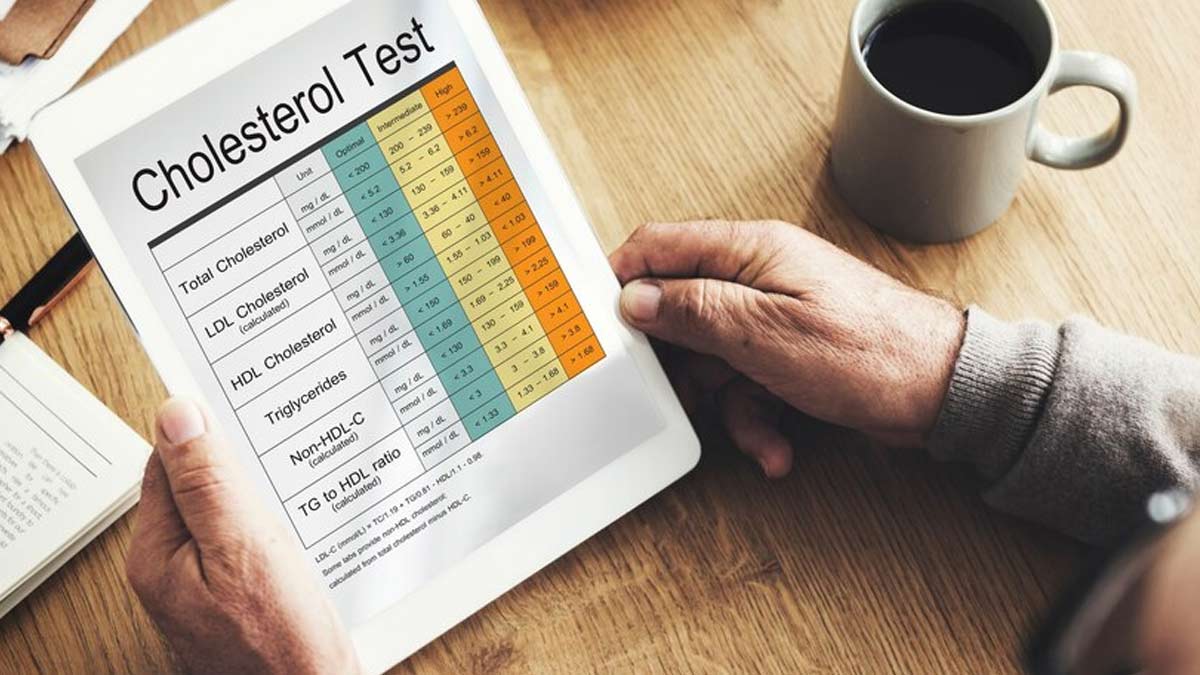
Have you ever wondered if high cholesterol is sabotaging your weight loss goals? High cholesterol and weight gain are related, but having high cholesterol itself does not directly cause weight gain. Instead, the factors that lead to high cholesterol, such as poor dietary habits and a sedentary lifestyle, are also likely to contribute to weight gain. Understanding the relationship between cholesterol and weight can help in managing both. We spoke to our expert Dr Rituja Ugalmugle, Internal Medicine, Wockhardt Hospitals, Mumbai Central, who shared insights on the same.
Table of Content:-
Connection Between Cholesterol And Weight

Cholesterol and Diet
Cholesterol is a fatty substance produced by the liver and found in certain foods, particularly animal products like meat, dairy, and eggs. "Consuming foods high in saturated fats, trans fats, and cholesterol can raise blood cholesterol levels. But it’s not just about cholesterol itself; the types of foods you eat can have a significant impact on your overall health," explained Dr Ugalmugle.
Many dietary habits that increase cholesterol levels are linked to calorie-dense foods contributing to weight gain. For instance, fast food, fried items, and processed snacks not only elevate cholesterol but also increase your overall calorie intake. When you regularly consume these types of foods, you're likely to see an increase in both cholesterol levels and body weight.
Cholesterol and Lifestyle

A sedentary lifestyle can also be a major factor in both high cholesterol and weight gain. Lack of physical activity slows down metabolism and can lead to the accumulation of excess calories as body fat. According to a 2015 study, reducing sedentary time and participating in moderate-intensity physical activity may be linked to a healthier blood lipid profile, especially in terms of High-Density Lipoprotein (HDL) and triglyceride levels.
Moreover, physical inactivity affects how your body manages cholesterol. "It can lead to higher Low-Density Lipoprotein (LDL) levels, known as 'bad cholesterol', while reducing HDL, the 'good cholesterol'. Over time, this imbalance can contribute to increased weight and higher cholesterol levels," said Dr Ugalmugle.
“Physical inactivity also affects how your body handles cholesterol, making it more likely for Low-Density Lipoprotein (LDL) levels (bad cholesterol) to rise while reducing HDL (good cholesterol) levels. Over time, this can increase both your weight and cholesterol levels,” added Dr Ugalmugle.
Genetic Factors
Genetics also play a role in cholesterol levels, and some people may inherit conditions like familial hypercholesterolemia, which results in naturally higher cholesterol levels. However, this condition does not inherently cause weight gain. Instead, lifestyle choices to manage cholesterol, like healthier eating and increased physical activity, can prevent weight gain.
Also Read: Cholesterol Inside Heart And Leg Arteries: Expert Lists Warning Symptoms You Shouldn't Ignore
Managing Cholesterol and Weight
To effectively reduce both cholesterol levels and the risk of weight gain, adopting a heart-healthy lifestyle is essential. This includes:

- Balanced Diet: Emphasise a diet abundant in fruits, vegetables, whole grains, and lean proteins. These foods offer vital nutrients while keeping calorie and unhealthy fat intake in check.
- Regular Physical Activity: Strive for a minimum of 150 minutes of moderate-intensity exercise each week. Engaging in activities, such as brisk walking, cycling, or swimming can enhance your metabolism and positively affect your cholesterol levels.
These healthy habits not only help control weight but also lower bad cholesterol levels and increase good cholesterol. According to a 2016 study, losing 5–10% of body weight can lead to a significant reduction in LDL cholesterol levels for individuals at higher risk of cardiovascular problems. Similarly, a 2014 study indicates that losing as little as 1–3% of body weight can enhance HDL cholesterol levels.
Dr Ugalmugle concluded, "While high cholesterol itself doesn’t directly cause weight gain, the lifestyle factors that lead to high cholesterol, such as unhealthy eating and lack of exercise are often the same factors that contribute to weight gain."
[Disclaimer: This article contains information provided by an expert and is for informational purposes only. Hence, we advise you to consult your own professional if you are dealing with any health issues to avoid complications.]
Also watch this video
How we keep this article up to date:
We work with experts and keep a close eye on the latest in health and wellness. Whenever there is a new research or helpful information, we update our articles with accurate and useful advice.
Current Version